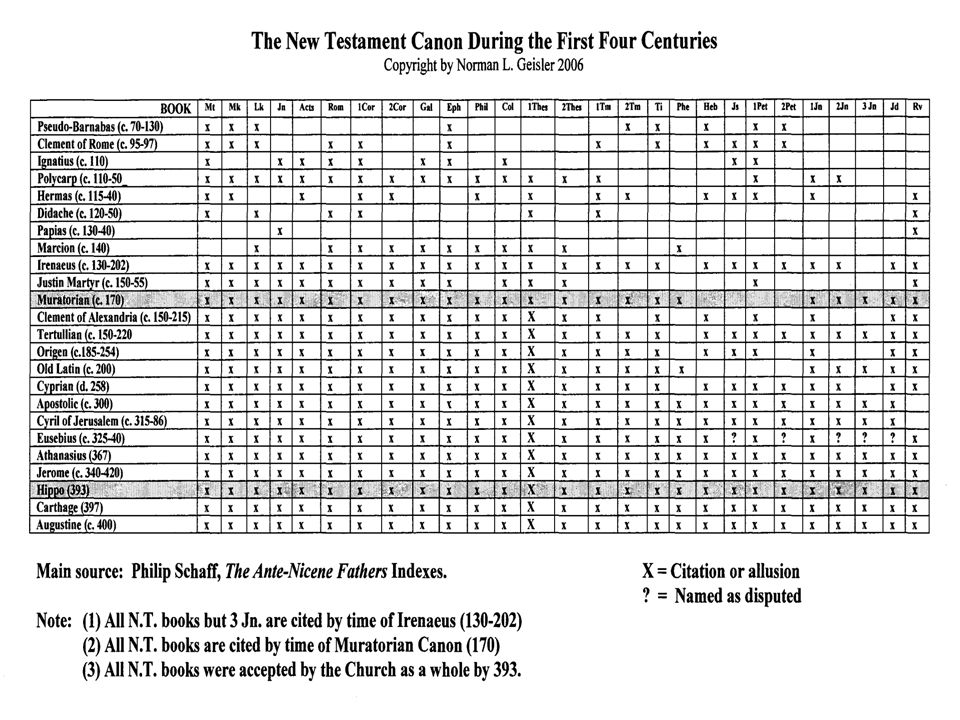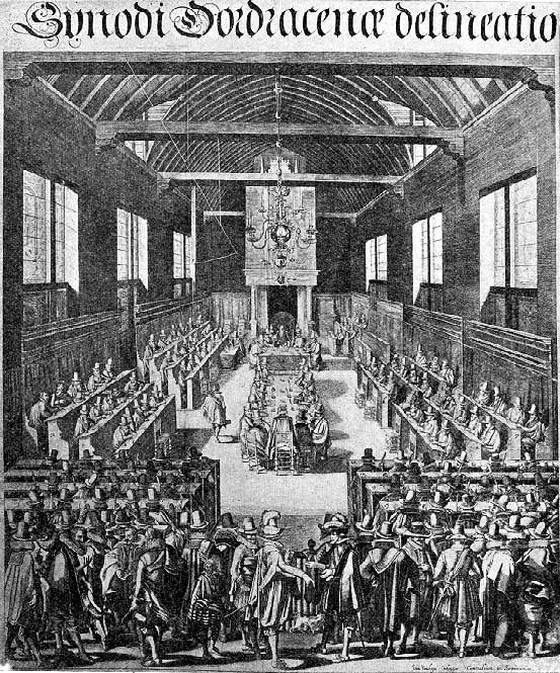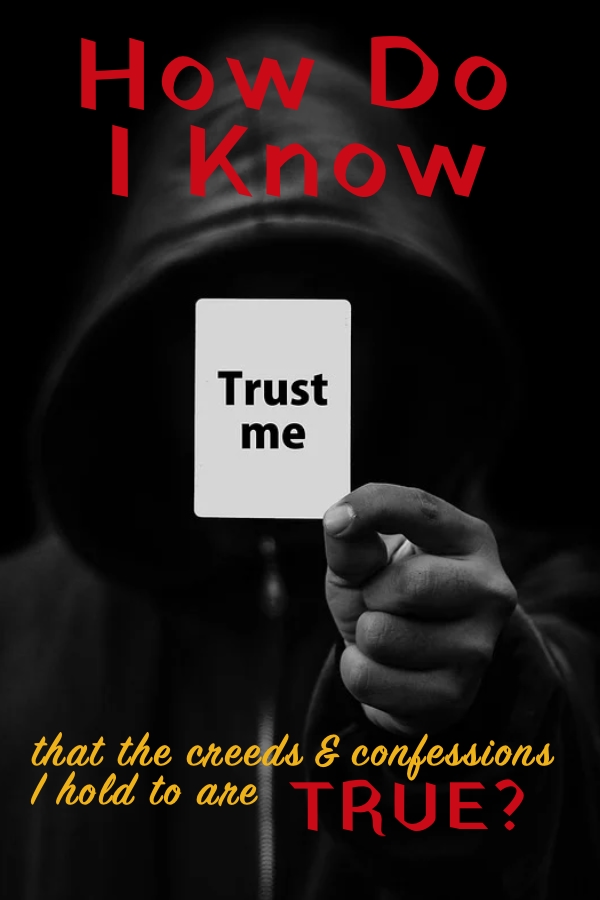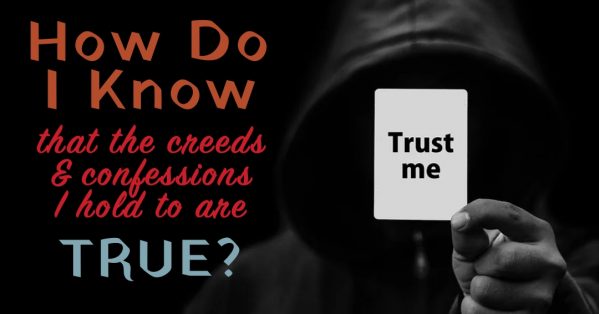This very important Big Question, recently posed on a discussion board I am a part of, got me thinking about truth and how we know what is true and whom to trust and believe. The question continued: “if I find any of the Creeds and Confessions (Nicene, Chalcedon, Westminster, Heidelberg, Belgic, etc) in error should I stop agreeing with them?”
There are so many foundational beliefs tied into this question, but post-Enlightenment we maybe don’t see it. I’d like to answer this question by giving an overview of how we know truth in Church History.
The long and short of it, is we know certain Confessions are true because they are tied directly to the teaching of Jesus and proven true by his Resurrection. (Whoa! That’s a big claim! Read on.)
First Disciples and the 500
Church history starts with the Book of Genesis. The Old Testament (OT) teaches us God’s great plan of bringing heaven and earth under one head, even Christ. But for the sake of brevity, I will lump the testimony of biblical characters together under “first disciples.”
We trust Moses. Just like we trust Daniel or Isaiah. They wrote something and we trust their character, that they wrote down what happened:
That which was from the beginning, which we have heard, which we have seen with our eyes, which we looked upon and have touched with our hands, concerning the word of life—the life was made manifest, and we have seen it, and testify to it and proclaim to you the eternal life, which was with the Father and was made manifest to us— that which we have seen and heard we proclaim also to you…
1 John 1:1-3
Everything about Christianity ultimately leads back to trusting someone else’s word. We start with trusting Mary, that she was a virgin. Then we trust the gospel writers, that they did the research they claimed. We trust Mary Magdalene, and the claims of those who said they saw the risen Christ.
If John was mistaken (or lied) about what he says is gospel truth, we have no foundation for faith. Paul showed this clearly when he said:
But if there is no resurrection of the dead, then not even Christ has been raised. And if Christ has not been raised, then our preaching is in vain and your faith is in vain. We are even found to be misrepresenting God, because we testified about God that he raised Christ, whom he did not raise if it is true that the dead are not raised.
1 Cor 15:13-15
Think about how much of our faith depends on Paul’s Damascas Road vision. We believe it happened, as did Luke who quotes the story 3 times. And Luke wrote almost half of the New Testament (NT).
When Paul testifies that “more than 500, most of whom are still alive,” saw the risen Christ (1 Cor 15:6), we trust he speaks true. What backs up the statements of the First Believers is their character: godliness, testimony, reputation, and martyrdom.
Christians understand the impact the Holy Spirit has on the lives of his people, requiring integrity and truth. We see the connection, though unsaved people may not want to affirm such a thing.
So: OT + First Believers → Words and Life of Christ
Early Church
The early church, likewise, replicated the same words as the apostles taught.
As Paul said, “For I received from the Lord what I pass on to you.” Responding to Paul, the Bereans studied Scripture to see if what Paul said was true. They studied the Old Testament, which confirmed the New.
And yet, most Jews today don’t believe the NT. The OT on its own is not sufficient, not without instruction. So a correct understanding of the OT depends on “hearing” from someone else how to see things: (“faith comes by hearing… by the word of God” and “how can they hear unless someone is sent? (Rom 10:17, 15))
Paul even encouraged the next generation of Christianity to use the same formula:
…and what you have heard from me in the presence of many witnesses entrust to faithful men, who will be able to teach others also.
1 Timothy 2:2
Gary Habermas, in the 2020 NCCA Apologetics conference spoke about a fascinating study of the earliest Christian creeds and catechism-like confessions in the epistles of Paul.
“The epistles of Paul predate the gospels by a mile…Which epistles? Critical scholars (you can be as critical as you want…you can be an atheist New Testament scholar…but) they’re going to accept seven epistles of Paul. Seven epistles of Paul are accepted by everybody….1 Thessalonians (the earliest according to most), 1st and 2nd Corinthians, Romans, Galatians, Philippians, and Philemon…. Most scholars say that 1 Thessalonians was the earliest, at 50AD… That’s 20 years after the resurrection of Jesus.
“So we have the cross at 30. We have Paul’s first epistle of Thessalonians at 50….20 years later. But when Paul starts writing 1 Thessalonians, he doesn’t do a theology lesson about who Jesus is…Paul starts right in and gives some pretty heavy theology. And that’s because they already heard Paul before. But there’s another reason.“In the New Testament, there are Credal texts…short little snippets that are included in the epistles that were preached orally before they were included in the epistles…You do not have to be literate before you could memorize these…So, the early apostles preached with these little snippets which were almost always on the gospel information…and they are included in the epistles mostly. And when they come out, there is evidence they were around for quite a while.”
“In Galatians Paul tells us 1;18-20, Paul says…He went to Jerusalem just 5 years after the cross….Paul becomes a Christian 2 or 3 years after the Cross. He says 3 years after I became a Christian I went to Jerusalem…(3 plus 2 is 5)…he goes to Jerusalem 5 or 6 years after the cross, (so we are 35 or 36 AD). And there he stays for 15 days, and he interviewed Peter, James the brother of Jesus, right there for 15 days.
“Galatians 2, the first 10 verses, Paul says he went back some years later (before 1 Thessalonians was written) and he met again with Peter, met again with James…and now John is there. Why is this important? Because in the early church nobody is more influential…than these [four]…They come to Jerusalem and talk about Jesus and the gospel…critics will give you that. Critics will give you Galatians.
“Galatians chapters 1 and 2, and 1 Corinthians chapter 15:3 and following. Romans 10:9. The consensus New Testament view is that this material [these creeds] is prior to Paul’s trip to Damascus. So when Paul is getting ready to leave, these creeds are already in existence. Critics call them pre-Pauline….from Jerusalem, prior to Paul’s conversion, probably taught by the apostles, Paul learned them from the apostles…5 years after the Cross.”
“…These credal sources come from the apostles, and worked their way into the epistles [so they] are inspired like the rest of the New Testament is.”`
NCCA Conference talk, Oct 14, 2020, Gary Habermas “The Latest Evidence for the Resurrection of Jesus” source
I quote Habermas at length firstly because the talk and reasoning is so persuasive. But mostly, this shows the direct connection between words and creeds and passing-on of confessions. We have quoted creeds from within 5 or 6 years after the Cross.
So far we have OT+Words of Christ → Early Church Teaching & Epistles (NT)
Church Councils
After the apostolic era, the books the apostles wrote, which had been treasured and kept safe by the Church, were identified and gathered. The standard for a book to be included in the canon included that it was written by a trustworthy person who was an apostle or who worked closely with an apostle. (See Eusebius for details about this).

Then began identification of heresies–or another word for this, identification of Christian Creeds. What IS and what IS NOT true about Christ.
The creeds, then the confessions, were compiled by men. But they tie directly in to these Scriptural creeds mentioned by Gary Habermas. The Nicene creed is inspired by God, because of this connection with Scripture. The Chalcedon Confession likewise summarizes the entirety of the OT+NT. One need only read the Tome of Leo to see how Scripture itself shaped the conclusions of Chalcedon.
Every true Christian trusts Nicene. It is the barometer of the faith. This means every Christian trusts the writers/council’s formulation or description of the faith. Likewise, our ability to explain the dual-nature of Christ comes from Chalcedon. The prePauline creeds carried the meaning of the Cross–as effectively and successfully taught by Christ to his disciples–and these were brought into its wider context in through Nicene and Chalcedon councils.
So OT+Christ’s Words → NT → First Creeds & Confessions
Catholic Church
Much can be said about the true and false teachings happening when the Catholic church let go of Scripture and clung merely to tradition. Sadly, the traditions coming from the later councils sent the Catholic church on a tangent. And the Reformers called them back to the original path.
Or: Tradition + Reason > OT +NT + Creeds & Confessions

Reformation
Most Protestants are aware that Martin Luther hammered 91 Theses onto the church door of Wittenberg. These 91 statements were summaries of ways the Roman Catholic Church had gone off the path. And they were a call to return. John Calvin, John Huss, John Wycliffe all in their unique ways called the Church back to Scripture. In other words:
“Come back to OT+NT (God’s Plan+Christ’s words + creeds)”
As the Reformation blazed, we have codification of some of these principles. We have Calvin’s Institutes (1536), Belgic Confession (1561), Heidelberg Catechism (1563), Canons of Dordt (1619), and the Westminster Confession of Faith (1646).
If you look carefully at any of these documents, you will see that they are arguments from Scripture on summary statements. Or, they are “the Bible arranged thematically.” The main premise of all of these is: Scripture interprets Scripture.
But most important is this: there is a direct line of authority to the words of Christ.
OT → Words of Christ → Creeds in Scripture → Creeds in Church → Teaching of Reformers → Writing of Confessions
So what is the measure? The plumb line is always the Bible, and the explanation of the Bible by godly leadership. Instead of taking the points off a confession one by one and asking if you agree, you should research the people in that meeting.
The “Westminster Divines,” and the others who worked together on these projects, were corporately more knowledgeable in Scripture than any one person. And the corporate voice of the many holy men interpreting Scripture must bear more weight than the mind of post Enlightenment individuals. Our minds are tainted by the new thing, the Enlightenment’s view of man. Read on.
Enlightenment
After the Reformation, worldly wise men needed a “reasonable” way to live in sin without the truth of God’s word guiding or “controlling” them. Their principles centered around rationalism, freedom, toleration, progress, individualism, relativism, and deism (a hands-off God).
The Enlightenment is a result of codifying the deification of man. While the Reformation broke free of unwarranted “spiritual” control of the Church, the Enlightenment took it one step further and broke free of the “unwarranted control of God over mankind.” Pulling further away from “any” authority they promoted ideas such as autonomous individualism, reductive naturalism, moral relativism, and narcissistic hedonism.
Or: Man’s Wisdom + Human Reason > OT+NT+biased church people’s superstition
R. Scott Clark’s book, Recovering the Reformed Confession, discusses at length the impact the Enlightenment has (even today) on marring the truths of the Reformation in OUR brains. I recommend looking into this to see how tainted OUR reasoning is because of the Enlightenment. Everyday western Christians are influenced by this in ways they don’t even realize. It has seeped into modern man’s views of church, of gender, of race, of religion. The Second Great Awakening was ultimately an “enlightened” (or woke) Christianity, and from this we have a plethora of new incentives, theologies, eschatologies, and soteriologies pivoting on freewill.
Today
As Clark emphasizes, this cultural shift of the late 1700s morphs OUR ability to understand and weigh the creeds and confessions. The Enlightenment ideas are like lenses we unknowingly view reality through. He suggests ways to “take off” those lenses and to see the world and reality and Scripture without the bias.
Reformed confession is the only reasonable basis for a stable definition of the Reformed theology, piety, and practice. As a class of churches that profess allegiance to the Reformed theology, piety, and practice as revealed in God’s Word and summarized in the Reformed confessions, we have drifted from our moorings.
R. Scott Clark
A couple years ago I dialogued with R. Scott Clark about this.
I said:
“We think we’re being true to the Reformation, but turn and find out we’re buying into Romanticism’s influence on the church, or Transcendentalism’s or the Enlightenment’s. How we are a product of the Second Great Awakening, like it or not.
Then we want to jump back over to the Confessions and hold tightly to that, but find that we are already a product of our time. We reason according to the pattern our mind knows how to reason by. We are a PRODUCT, our thoughts are a summation.” Then I asked if there is any way to be un-impacted by our national and individual past and the “poison in the air.”
He responded:
“Are we trapped in our own culture? No. We’re always, unavoidably in a culture but reading outside of our culture (in my case, reading the past) gives us perspective on our culture.”
R. Scott Clark, personal correspondence
This is why I suggest that the Confessions pre-Enlightenment are more reliable than our own private interpretation of Scripture.”
Tied into this, if you take a look at who attended these councils, how they were selected, how they debated, what was decided, you realize the reliability of the “HIVEMIND” behind any of these documents. (See History of the Westminster Assembly of Divines)
What is Truth?
Again, Scripture mandates passing on Truth about Christ by word and writing, the only HITCH in this series of “god-inspired tradition” is what Protestants claim to be the falling-off of the Roman Catholic church.
Interestingly, even the Roman Catholics will agree that there was gross corruption. The Council of Trent was their attempt to recalibrate.
The problem is, in their recalibration, they had too much entrenched bad doctrine they couldn’t get out of without losing all authority. For example, teachings on saints and Mary, stemming from many of the post-Chalcedon councils. They reformed, but not to the point of accepting the five solas:
Sola Scriptura, Sola Gratia, Sola Fides, Solus Christus, and Soli Deo Gloria, which are five statements that sum-up the OT+Teachings of Christ.
Conclusion
To know whether the creeds and confessions are true, you have to look to the source. Follow the clues. Instead of believing that individual interpretation of the Bible “can trump” the corporate consensus, look at God’s evidence:
- God proved Christ’s words by miracles and his Resurrection, which Jesus said would happen
- God proved the Apostles’ words by miracles and authority of Truth, sealed with their blood
- God proved the Truth of the Church’s teaching through believers’ godliness & alignment to and use of the plumb-line of Scripture.
- God proves the Truth of the Confessions to our hearts through reason (the reasonable statements with proof-texts), through clear Word of Scripture, and through the power of the holy lives of the men who wrote them.
- Likewise, God exposes false belief systems through their idolatry and ungodliness: when man is exalted, when rules are more important than heartful obedience, and where love of God and His Word is set aside for feelings and self.
We know we can trust the entirety of the Confessions because
OT → Words of Christ → Creeds in Scripture → Creeds in Church → Teaching of Reformers → Writing of Confessions
and because the Bible says this is how we will know:
We know that no one who is born of God sins; but He who was born of God keeps him, and the evil one does not touch him.
We know that we are of God, and that the whole world lies in the power of the evil one.
And we know that the Son of God has come, and has given us understanding so that we may know Him who is true; and we are in Him who is true, in His Son Jesus Christ. This is the true God and eternal life. Little children, guard yourselves from idols.
1 John 5:18

The Confessions are cohesive and thorough, so taking “one bit out” that we don’t like makes ALL of it unreliable. As for the places these Reformation creeds and confessions differ, the points are so minor and non-essential that it would be a matter of preference.
“No barriers to true unity exist between those who hold to them in their doctrine and life and those who maintain the continental Confessions as their confessional basis, and that they stand solidly in the tradition of the Calvin Reformation”
source
For a discussion of the differences, take a look at this study, from which this quote was taken.


